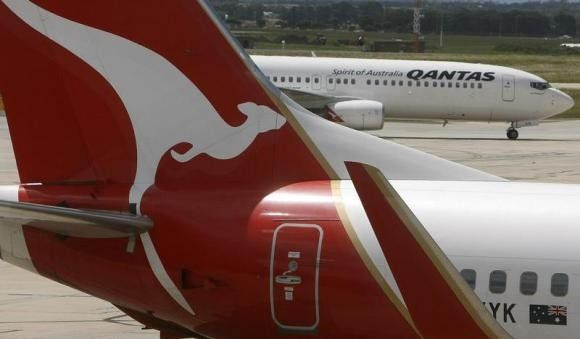Australian Airlines Revised Policies: Electronic Devices Now Allowed On Takeoff And Touchdown, And Other Changes

Good news for gadget enthusiasts: Qantas and Virgin Airlines in Australia have modified their policies on electronic devices.
It used to be that passengers are required to turn off their smartphones, laptops and tablets during taxiing, takeoff and landing and can only use their devices while the plane is cruising. Now passengers can use their devices from gate to gate as long as they're on flight mode.
In a report by Yahoo! News, Peter Gibson, spokesman for CASA said, "Aircraft are now designed and built with electromagnetic interference in mind. So [passengers] can leave their devices, laptops, smartphones, tablets on from gate to gate." However, bigger devices like laptops have to be turned off during takeoff and landing to avoid damaging these during turbulence.
On Aug. 26, 2014, the two Australian airlines introduced the new changes, with all international and domestic Qantas flights now implementing the revised policy. Virgin Australia, on the other hand, allows the flight-mode policy on all domestic and short-haul international flights.
Furthermore, upon landing the new policy allows passengers to send emails and text messages when their smartphones and tablets are set to normal mode. Passengers will not be allowed to make in-flight calls, however. There is no signal while the aircraft is in the air so it would be impossible for them to make calls, anyway. Passengers displeased with noisy chatter from their seatmates' phone calls during flight can be rest assured -- the airlines intend to allow passengers to send and receive email and texts instead of making direct calls.
Certain airlines also increased their security measures, banning passengers from flights to the United States if their electronic devices are not charged. Gadgets will be confiscated before boarding if the owner cannot prove that these do not include explosives, or if they fail to turn the device on. The devices have to be charged and must be turned on for the security officers to determine if these are safe during flight.
Another new policy for travelers departing from Australia during international flights is giving them an option on where they plan to purchase duty free liquids, gel items and aerosol. If these are bought at an off-airport retailer, the passenger can keep this in checked baggage or go through security screening at any international gateway airports. After passengers go through the screening area, they may purchase these products in quantities of more than 100 milliliters.





















